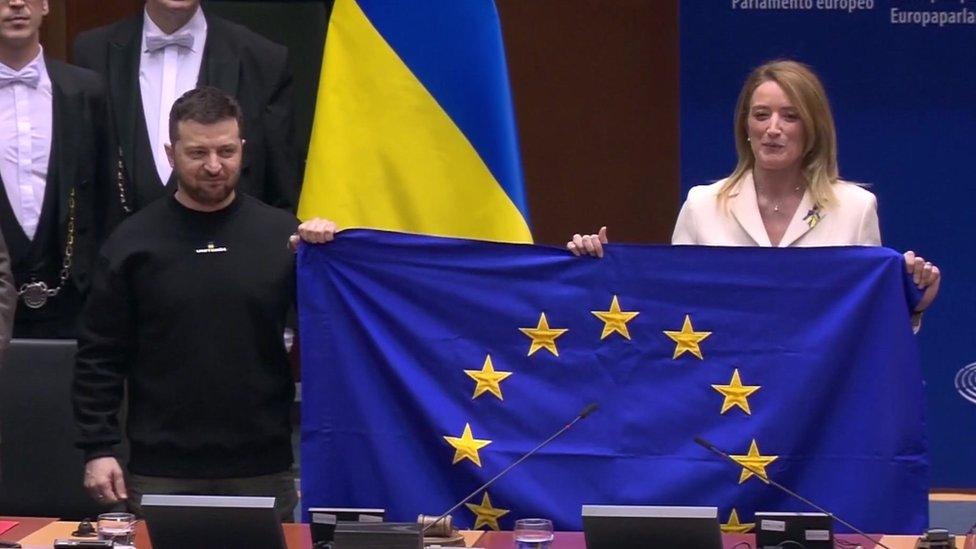Ukraine war: Halo Trust landmine charity to double workforce
- Published
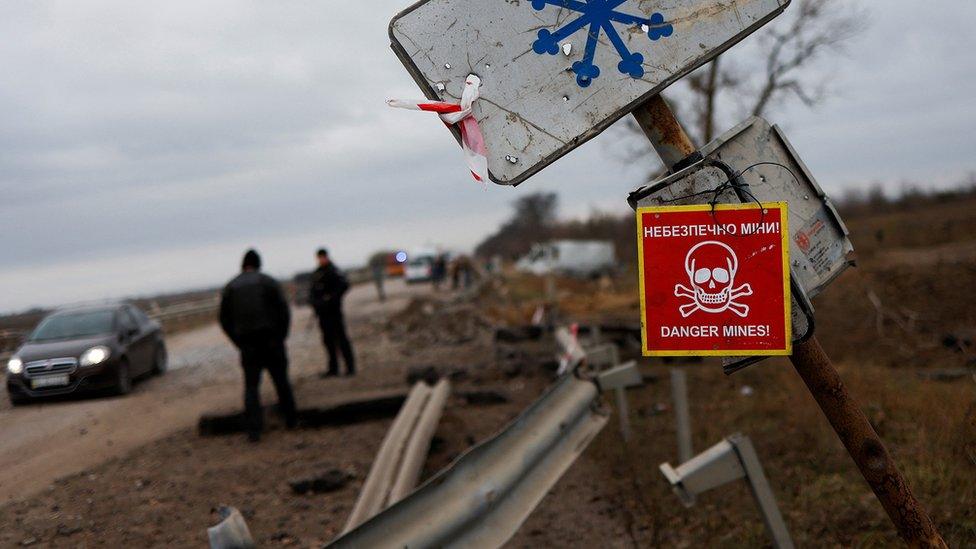
A mine warning sign hangs from a pole by the main road to Kherson
The world's largest land mine charity, the Halo Trust, is doubling its workforce in Ukraine this year to clear areas of explosives.
The Scotland-based charity said it was undertaking a "huge" training programme to expand its staff to around 1,200.
It has been active in Ukraine since the conflict in the east broke out in 2015.
The charity said it was impossible to quantify how many mines, shells and rockets needed to be cleared, but the process was expected to take decades.
Halo Trust chief executive, James Cowan, said the general rule is that for every day of war, a month-long clear-up is needed.
Speaking at the trust's headquarters in Dumfriesshire, he said: "The area the Russians have occupied is about the size of the whole of the United Kingdom. It's absolutely vast.
"They're firing about 40,000 artillery rounds a day, of which about 10% are not going off. So there are still live rounds buried in the ground.
"They are laying landmines on an extraordinary scale. They're using cluster munitions, using rockets, they're using missiles."
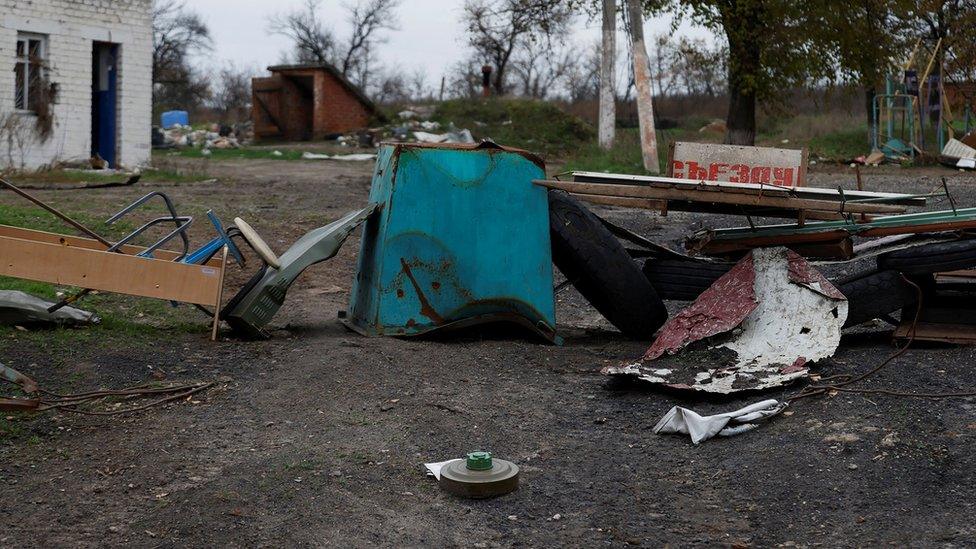
An anti-tank landmine in the village of Kamyanka, on the outskirts of Izium in Kharkiv region
The Halo Trust, which operates in 28 countries, trains local staff for its mine-clearing work.
The charity's most recent work has been in the Kyiv region, to clear anti-vehicle mines laid by Russia in March and April 2022.
Staff are also examining the situation around Kherson, following Russia's withdrawal from the area in November last year.
Mr Cowan added: "When the war began in earnest in February, we had to withdraw people.
"Some ended up having to join the Ukrainian army, some ended up with other responsibilities, and we've had to rebuild the programme.
"We went down to about 200 staff, but now we're at 630.
"By the summer, we'll be at 1,200. It's really a huge programme of training, of re-equipping, of pivoting from Donbas to around Kyiv and then expanding to Kharkiv and to Mykolaiv."
The charity has not been allowed to work in Russian-held parts of Ukraine.
Related topics
- Published10 February 2023
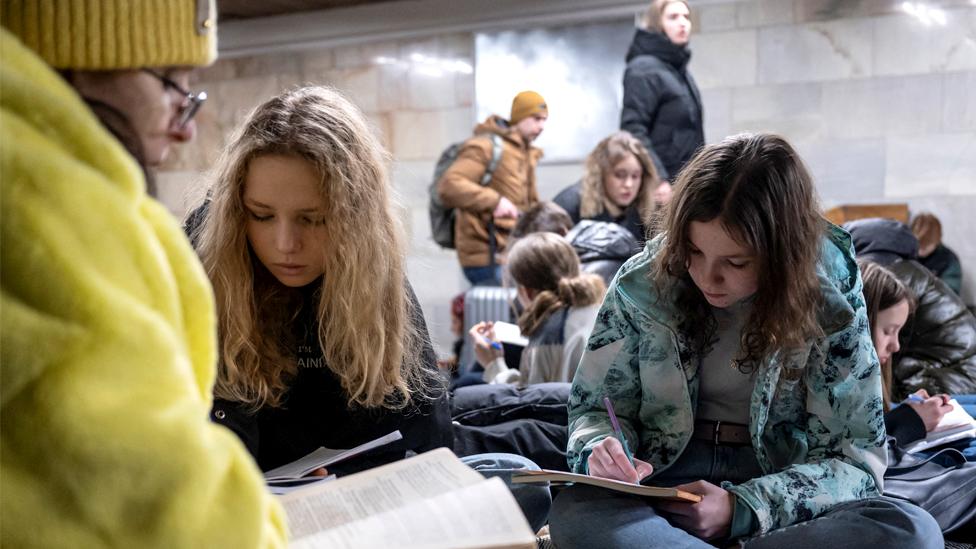
- Published10 February 2023
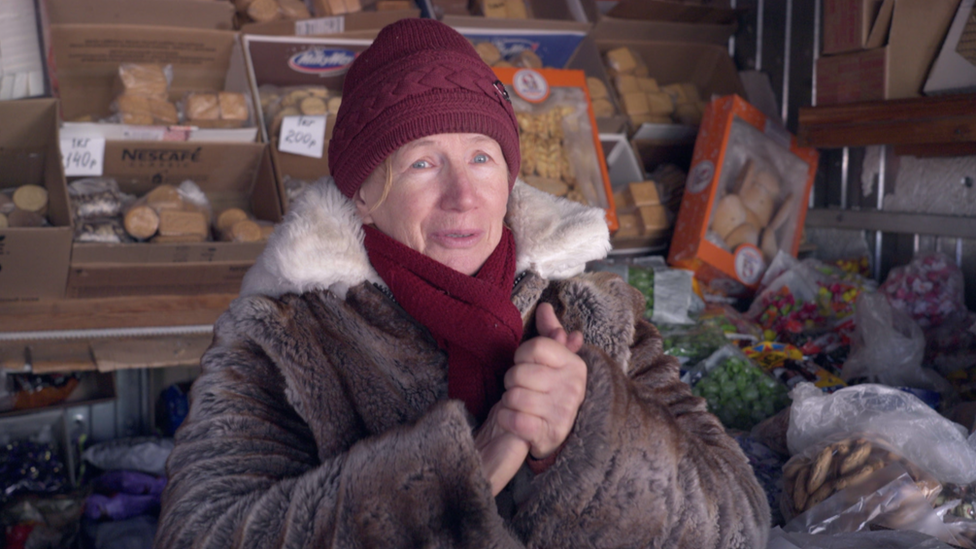
- Published9 February 2023
